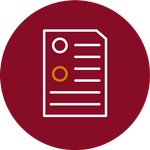Learning how to stop procrastinating while studying is the key to successful revision. Given the huge number of ICAEW members and ACA students we support during stressful exam times, we understand the pressure you're under and are here to help.
what is procrastination?
Procrastination doesn’t just apply to revision, but all aspects of our professional and personal life. In a nutshell, it’s the act of putting off tasks. According to research carried out by the US psychologist Piers Steel, 80% to 95% of college students procrastinate, particularly in relation to completing coursework.
It's important to remember you're not alone if you're struggling to concentrate when revising.
how to prevent revision procrastination
6 tips for efficient revision
“I found myself staring at my screen for long periods of time unable to work and therefore not being as productive as I could have been.“








